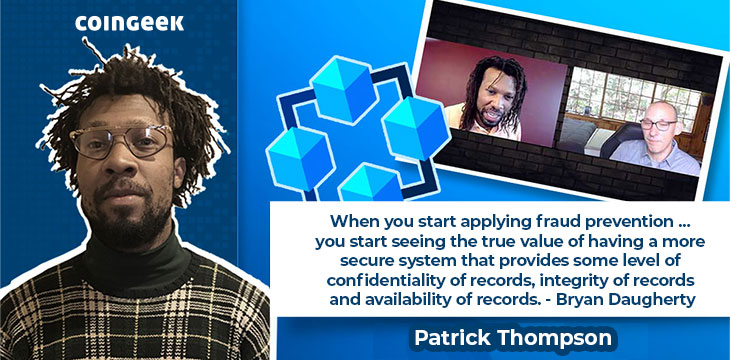|
Getting your Trinity Audio player ready...
|
A new report from the White House outlined U.S. President Joe Biden and his administration’s plan to focus on proof-of-work mining and its environmental effects. In light of this, Bryan Daugherty, Public Policy Director for BSV Blockchain, says he sees the U.S. moving in the same direction as the European Union (EU) by “making this much more of an environmental discussion rather than any other type of discussion.” He implores the bitcoin community to become advocates and speak up.
“Voice these concerns, whether it’s about consumer protection or whether it’s about the potential stagnation of innovating on proof-of-work, scalable blockchain,” he asserted.
Bryan dedicates most of his time educating lawmakers, policymakers as well as staffers to understand the utility aspect of blockchain, specifically BSV’s. He is also the co-founder of blockchain distribution network SmartLedger, a company that provides tech solutions and information to entrepreneurs, investors, developers, and government figures.
As he tells Patrick Thompson on this episode of CoinGeek Weekly Livestream, he and his team recently responded to the Office of Science and Technology of the White House.
“We were able to kind of coordinate responses from TAAL and nChain and SmartLedger to very specific questions that government officials have,” Bryan says.
Bryan is keen to point out that many policymakers are entwined in understanding blockchain technology. He sees potential harm in the growth of scalable blockchain enterprises due to policymakers acting hastily in creating bills and amendments to address blockchain-related concerns.
Energy consumption from Bitcoin mining is a matter of concern for policymakers. Earlier this month, Bitcoin miners in Texas stopped operations for more than a week to relieve pressure on the power grid amid a heat wave that prompted residents to turn on their air conditioners. Albeit unsettling, people should focus more on the benefits that blockchain technology brings to the world, he adds. For his part, the focus must not be on people mining for revenue but more on the transactions put on chain that are serving businesses and creating efficiencies in the enterprise world.
As Bryan explains, “when you start looking at the value that these transactions provide and utility it provides, this is something that gives as a national, regional, economic boost.” He adds, “blockchain provides real world utility and security that is just not capable in today’s legacy environments.”
Bryan thinks people often overlook the actual incentivization that blockchain provides. For one, technology creates transparency and helps mitigate fraud, he says.
“When you start applying fraud prevention and no matter what industry or sector, you start seeing the true value of having a more secure system that provides some level of confidentiality of records, integrity of records and availability of records,” he remarks.
Also discussed in the episode is the contentious topic of regulation in the blockchain industry. Bryan admits many unprotected bitcoin consumers in 2017 lost a great deal of money in the “crypto space.”
“The speculation and hyper-focus on this crypto casino is something that engulfs the media,” he asserts.
The focus on cryptocurrency markets may be a hindrance that prevents blockchain technology from growing and prospering. Bryan thinks the word “cryptocurrency” should be uncoupled from the word blockchain.
“I really think that the conflation of the terms, cryptocurrency and blockchain, we need to separate them significantly,” he points out.
As far as regulations go, Bryan believes there is a need for consumer protection, especially in the crypto-verse. He asserts, that companies should be held accountable.
“We see it and more so even ever, in just the last few months with exchanges, wallets and financiers behind the scenes that are just going belly up or have really made some horrific financial choices,” he states.
The existing laws do not apply in some cases, and creating new laws are often times unnecessary, Bryan notes. To address the issue, he thinks there should be more emphasis on understanding bitcoin and blockchain.
“They [policymakers] need to really be pragmatic and spend a great deal of time defining these terms because before you can legislate, you must define these terms that you’re legislating of, and that’s a slippery slope,” he concludes.
Check out the previous episodes of CoinGeek Weekly Livestream on YouTube.
Watch: The BSV Global Blockchain Convention panel, Blockchain mining & energy innovation
https://www.youtube.com/watch?v=z07TPyXw2OE

 02-25-2026
02-25-2026 




